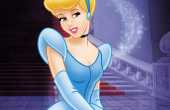Stephanie M.
I'm a content writer and novelist who loves books, writing, theater, and my cat. I have published two novels and traveled to London and Paris.
Columnist III
- Plebian Penman
- Common Writer
- Aristocratic Author
- Noble Scribe
- Lurker
- Pssst
- Hand Raiser
- Vocal
- Outspoken
- Extrovert
- Center of Attention
- Forms a Crowd
- Sharp-Eyed Citizen
- Town Watch
- Detective Deskman
- Penman Patrol
- Forensic Fiend
- Motivational Columnist
- Motherboard
- Composition
- Literary Art
- Referencer
- Actor
- Successful Pilot
- Animator
- Animaniac
- Well Read
- Chaptered Mind
- Art Collector
- Article of the Month
- ?
- Articles
37 - Featured
33 - Comments
665
- Ext. Comments
316 - Processed
183 - Revisions
180
- Topics
76 - Topics Taken
5 - Notes
243
- Topics Proc.
74 - Topics Rev.
16
- Points
12211 - Rank
4 - Score
8429
Latest Articles
Latest Topics
Published | Alternatives to Microtransactions in Games and AppsCell phones are ubiquitous these days, as are phone-based games and apps. These activities are colorful, fun, and addictive–if you have the money for an addiction, that is. Most if not all cell phone games, as well as some apps such as Lumosity or adult coloring books, are free but have in-app purchases. The in-app purchases are usually tied to premium content or the ability to play the "full" game. For instance, in Jeopardy World Tour, you can play rounds for "free," as long as you have virtual cash. To increase virtual cash, you can wait more than 24 hours for your bank to build, or you can purchase virtual premium currency with actual money. Even the best-intentioned game/app users end up engaging in microtransactions more than they mean to. In many online worlds, people who spend a lot of real money actually have a nickname; they’re called "whales." Whales or not, most players complain about microtransactions, but admit they don’t know an alternative. Could there, or should there, be alternatives to microtransactions? If yes, what might those be? Are there currently apps or games that don’t depend on microtransactions, and if yes, what makes them successful? How are these games or apps able to "survive" without monetary microtransactions? Examine and discuss. |
Critic vs. Chick: Who Does Nostalgia Better?Circa 2008, YouTube gained a new channel and star in Nostalgia Critic, AKA Doug Walker. Going by that name and the hfaandle ThatGuyWiththeGlasses, Doug Walker gave viewers scathing, humorous reviews of nostalgic movies, shows, and commercials from the ’80s-’90s. "I remember it so you don’t have to," he begins almost all of his (early) videos. A while after the Nostalgia Critic came to fame, he held a contest to find a female counterpart. The result was the stardom of Lindsey Ellis, Nostalgia Chick. As her name implies, Nostalgia Chick covers content the Critic doesn’t, mostly content aimed at a female base. She tends to focus her reviews on feminist criticism and the portrayal of female characters. However, both critics’ reams of views indicate their fans are not necessarily divided by sex or gender. Both sexes can enjoy both critics, so what, other than feminist or non-feminist content, distinguishes the two? Is one critic inherently "better" than the other, and if yes, why? Have changes in the videos’ formats, such as Critic and Chick appearing together or with other characters, changed the conversation about their content? What kind of viewers do Chick and Critic cater to, regardless of gender (i.e., would you recommend a new viewer go to one person or the other for a certain type or "tone" of content)?
|
An Examination of Classic RetellingsFrom reams of fairytale retellings, to Pride and Prejudice and Zombies, from Meg and Jo to Circe, the literary world bursts with retellings of classic novels. The smorgasbord of material grows every day, giving rise to multifaceted questions. What sets one retelling of a classic apart from another (why, for instance, might someone choose the Little Women retelling So Many Beginnings over Meg and Jo, and its companion novel, Beth and Amy)? Do some classics lend themselves to retellings better than others? Perhaps most intriguing of all, what is the benefit, for writers and readers, of retelling classics and/or reshaping them for a current audience? Once these classics are reshaped or retold, are they classics any longer? Discuss.
|
How the Rugrats Reboot Will Influnece TelevisionOn May 27, a Rugrats reboot featuring CGI animation, new character voices, and adventures with a distinct 21st-century flavor will premiere on Paramount Plus. Some fans of the original Rugrats are eager to experience the reboot and compare/contrast, while others are skeptical at best. No matter what side you’re on though, there’s no denying this reboot will influence how people see the Rugrats franchise and perhaps, associated television (e.g., Nickelodeon). Discuss questions such as how the Rugrats reboot will influence these spheres, as well as the potential positives and negatives of the reboot itself. For example, how will the reboot’s location on a streaming service change the viewing experience and relations to the characters and plots? Do you think kids or adults will be more invested in the reboot, and why? It seems many of the new adventures will take place in the babies’ imaginations; is this a positive or negative move?
|
The Rise and Fall of Zynga Facebook GamesWhen Facebook first came out in 2007, social games came with it. Most of us played these games hoping to build connections with friends and improve our standing in fantasy worlds/virtual lives. One of the biggest provider of such games was Zynga. From Farmville to Cafe World to Hidden Chronicles, they churned out plenty of games with plenty of connections and worlds to explore. Yet in a few years, most of these games vanished. Hidden Chronicles, Cafe World, and others are now just Wikipedia pages, although you may find some Facebook groups still asking for the games to be brought back. Meanwhile, other games similar to these, such as Pearl’s Peril, are either floundering or closed. Examine some of these games and discuss why they didn’t last. Compare and contrast them to some games that are popular on social media now. Are the newer games easier? If yes, how? Are they more fun or satisfying? What problems might they still share with the old games? If older games were to return successfully, what improvements would they need to make?
|
Children's Historical Literature in a Cancel Culture WorldThis week, Slate.com’s parenting column, Care and Feeding, ran a letter from the concerned parent of a school-age child. The child’s majority-white class, led by a white teacher, had been reading Bound for Oregon as part of an Oregon Trail unit. This book, written in the ’90s, contains the N word. (From all indications, the parent and student are white, also). The parent expressed concern because when they went to the teacher, she simply said she told the students the N word "is not a nice word," they did not have to say it (when reading aloud in small groups), and the class would discuss the word "later." However, the discussion had not happened, and the parent wondered whether to pull the child out of the class/school over the teacher’s response. Unfortunately, Bound for Oregon is not the first historical kids’ or YA book to contain this word or other slurs, nor is it the first kids may be required to read in school. In 2020, what is the best way to handle this? Is there any historical kids’ and YA lit that stays true to its historical background without using slurs or outdated attitudes? Are those attitudes "necessary" or "object lessons"–in other words, would "cancelling" them deprive kids of so-called classics or needed info? Does the classroom makeup–the race of the students or teacher, orientations, ability levels, etc.–make a difference? If it does, at what point should related literature be introduced or handled (e.g., how should we handle Holocaust literature when the majority of a class is practicing Jewish? Should able-bodied students be required to read literature about disabled characters, when their school has a segregated special ed program)? Discuss.
|
Pending | Should What Not to Wear Reemerge from Television's Closet?In 2019, rumors circulated that the 12-season TLC hit What Not to Wear would get a reboot. As with many projects or rumored projects, this stalled during the pandemic, but now that the world is opening up again, the WNTW reboot might be a possibility. Some fans, and even Stacy London, have questioned how successful a 2020s reboot would be, though. Especially after a global pandemic, style seems more relative and fluid than it did in 2003 or 2013. The work-at-home phenomenon may mean the idea of "appropriateness for the workplace" has evolved or does not exist. Or on the other side of the coin, the pandemic’s isolation and the changing face of style may mean people are actually more eager to be and feel "stylish" or "put together" again. What would, or should, a What Not to Wear reboot look like? Discuss what issues it should focus on, who might be good candidates for a new show, and whether it should stick with the old format or some aspects, such as "rules" for appropriate clothing, should be retooled.
|
The Portrayal of Young Black Women in YA LiteratureYoung adult literature has seen a needed explosion of Black protagonists lately, and particularly Black females. Many of these new protagonists are also involved in Black Lives Matter or similar, sometimes fictionalized, organizations. They may be involved with other fictionalized organizations like Innocence X (The Innocence Project), seeking justice for incarcerated loved ones. Some Black female protagonists also rap, blog, or otherwise create to have their voices heard, and face both support and backlash. Examine the voice and portrayal of the young Black woman in today’s YA literature. Who is she? Is her representation fair and nuanced, or do a lot of her incarnations look the same (and why is that)? If you choose to discuss historical Black females, how are current fictional protagonists different from those written in past decades? What do Black female characters have in common, and how do they differ from each other as well as other races? Who are some of your favorites, and/or whose stories do you think today’s young adults should read first if they’re trying to gain an understanding of Black, female personhood?
|
Latest Comments
| Classic Literature's "Infinity Girls" | |
@Santos: Yes. I’ve been thinking about themes like this for a while. Someone commented on one of my other articles that Anne reads as an ADHD type of person, and now I “can’t unsee it.” Which is a good thing! | Classic Literature's "Infinity Girls" |
Well drat, I’m American. 🙂 Seriously though, you have good taste. | Classic Literature's "Infinity Girls" |
@Rich: Aw, thanks! *blushing.* | Classic Literature's "Infinity Girls" |
@Nicholi: I just love the idea of your dad, or any grown man really, being so delighted with Anne! Actually, she’s a delight no matter who you are. | Classic Literature's "Infinity Girls" |
@Kit-Kat: Oh, I didn’t know about that! It does sound a bit like Jane of Lantern Hill…maybe that one? | Classic Literature's "Infinity Girls" |
@Josh Fuller: It is sad, now that you mention it. The 1995 version is the one I loved most from childhood, but you’re right, it doesn’t capture all the nuances of the Sara from the book. I personally think the 1986 WonderWorks miniseries does a great job with this, but even Amelia Shankley, who plays Sara in that one, doesn’t come off quite as stoic and dignified as she could. It may be too much to expect of a child actor, but yes, more dignity is always nice. | Classic Literature's "Infinity Girls" |
@Brenna: I hear you. I wonder where your mom gets the idea that Sara Crewe is a “poor me” character, because she doesn’t strike me as such. Maybe what she meant was, she didn’t like you reading about girls in those types of situations for whatever reason (I had a sort of Cinderella/Cinderella story fixation as a kid, and my parents kind of reacted the same way, like they thought I *wanted* to be abused or something, which wasn’t true). *Sigh.* Neurotypicals, gotta love ’em. Maybe your mom is finally wise to the fact, “poor me characters” are not who or what she thinks. Maybe she’s found some sympathy and catharsis in these women, and is learning how to express some emotions she thought she couldn’t. At least, I hope so. | Classic Literature's "Infinity Girls" |








@Nyasia: Yup, especially since my own journey. Once you see it, you can’t unsee it.